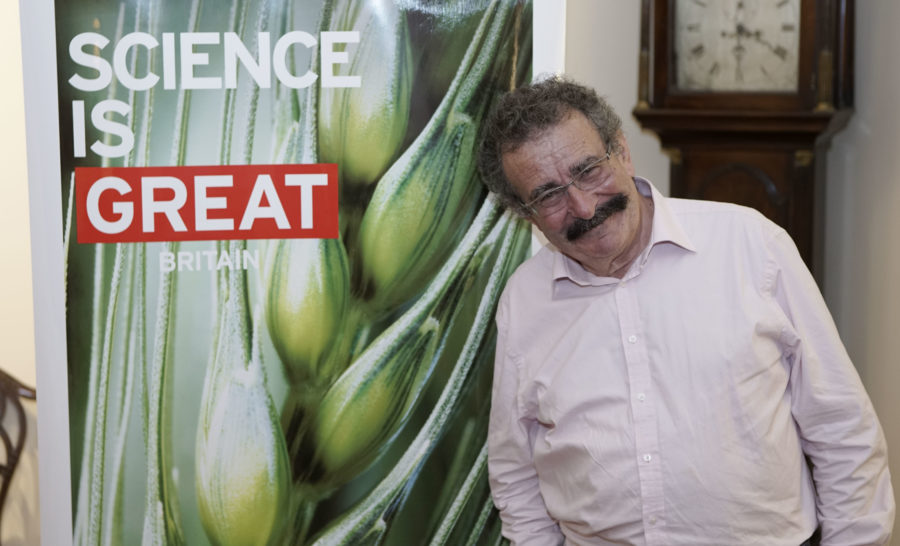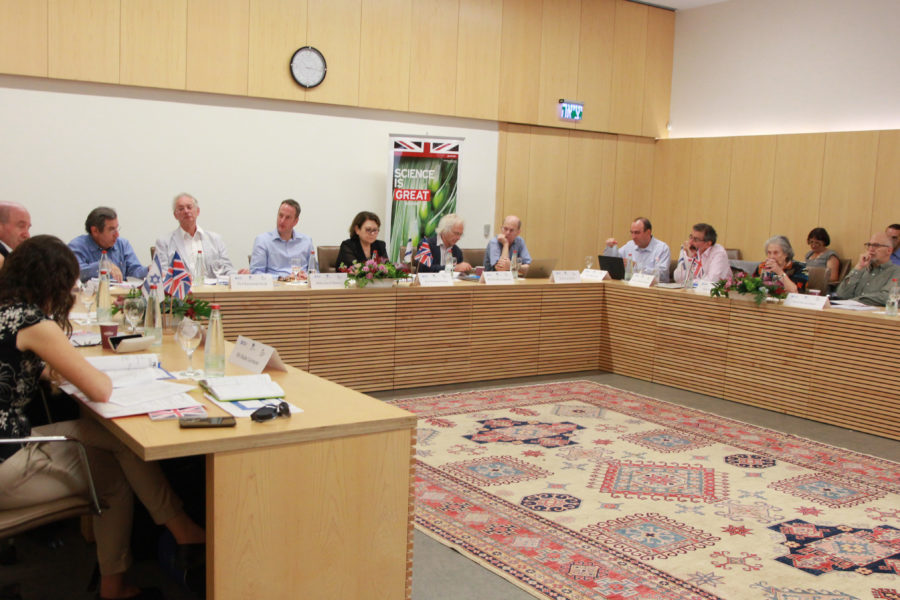27th July 2017 Science and Innovation Network
The UK-Israel Science Council: A new leadership and a look to the future

The UK and Israel have some of the brightest scientific minds in the world. Some of these outstanding scientists make up the UK-Israel Science Council – an exclusive group of 23 life scientists, computer scientists, water scientists, nano tech scientists, biophysicists, chemists and physicians that includes Nobel laureates, Lords, a university president, academy presidents and even a TV star. This team gathered in Israel last week for the Council’s 7th annual meeting at the Weizmann Institute of Science.
The Council was launched by UK Foreign Secretary William Hague in November 2010 with the core purpose of steering the scientific collaboration between the UK and Israel under the auspices of the UK Science and Innovation Network (SIN) in Israel.

This scientific collaboration focuses on several priority areas high on the agenda of both countries’ governments: nanoscience, neuroscience, water science, agri-science, regenerative medicine, cyber and anti-microbial resistance (AMR). The programmes which implement work in these fields, in a joint effort with the British Council in Israel, divide into three strands: researcher mobility, cross-border work and bilateral research.
Researcher mobility brings together leading UK and Israeli scientists in conferences, symposia and lectureship/fellowship schemes.
Cross-border work includes research involving scientists from the Middle-East-North-Africa (MENA) region. The STREAM programme funds trilateral UK-Israel-MENA water research to tackle some of the most crucial challenges in the MENA region. The GROWTH programme funds Palestinian PhD students researching life sciences at Israeli universities.
Bilateral research is achieved through the BIRAX (Britain Israel Research Academic Exchange) programme, in which more than 1,000 British and Israeli scientists and 120 academic institutions were involved, researching cures for diseases that affect millions of people worldwide. This programme focuses currently on regenerative medicine and is soon going to move on to the topic of ageing.

All this work was recently presented to the Council in its annual meeting, where the members also discussed topics for the next BIRAX calls for proposals on ageing, and new priority areas for joint work in the coming years.
This event also marked a change in leadership: the two Council co-chairs, Prof. Raymond Dwek of Oxford University and Prof. Rivka Carmi of Ben-Gurion University, left their positions after years of dedicated service, and were replaced by Prof. the Lord Robert Winston of Imperial College (TV superstar!) and Prof. Ruth Arnon of the Weizmann Institute.
We salute all four co-chairs and the entire UK-Israel Science Council for helping make our world a better place through science!